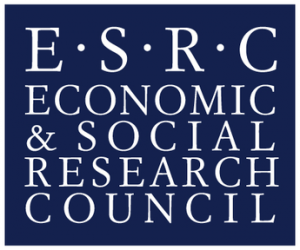David James University of Cardiff
It’s 7am on a cold morning in February. Two young people each begin their daily commute – Richard catches the train from Bristol to Cardiff so that he can attend his course at a college in that city, whilst Rhiannon gets into her car in Wrexham to drive to Chester where she is doing an apprenticeship in a large company. Richard and Rhiannon both cross the border between Wales and England without really noticing. But how significant is that border for their opportunities, ambitions and prospects?
In the realm of Education, FE and Skills, there are important differences between the four countries of the UK, and some key areas of policy and practice continue to diverge. At the same time, labour markets, employers and other organisations are often common or shared. Is it possible to learn from this ‘natural laboratory’, and is there a way of making this learning more likely to occur?
I was fortunate to be part of a group (led by Ann Hodgson and Ken Spours at UCL*) that devised a series of seminars focused exactly on those questions under the title Policy and policy learning across the four countries of the UK: the case of FE and Skills. We met in London, Cardiff, Glasgow and Belfast, topped and tailed with two ‘UK-wide’ events and augmented with an extra meeting in Jersey. We took care to balance participants so that they too ‘crossed borders’ of another kind: we included roughly equal proportions of senior and experienced policymakers, practitioners and researchers. The initiative was funded by the Department for Education, The Edge Foundation and City and Guilds, all of whom also participated in the sessions.
The purpose of the seminars was to build up a picture of FE and Skills policy and practices in each country whilst also comparing it to the others. We highlighted examples of ‘interesting practice’ in each. For example, in Wales we pinpointed:
- Junior Apprenticeships at Cardiff and Vale College, where young people who are not responding well to what school offers them (and/or are thought to be at particular risk of becoming NEET – not in employment, education or training) switch over to a high-quality vocational route;
- Skills competitions as a lever for change at the national policy level. Here, time and effort are focused on encouraging and enabling participation in international skills competitions, supporting talented young people in preparations to do so. A deliberate parallel is drawn with international sport, i.e. ‘Skills Olympics’;
- Policy partnership in action. This is a more cultural feature, to do with shared expectations of partnership working in the political and civic landscape. Strong notions of partnership appear in the main advisory and decision-making bodies in Wales, and even in the institutional reorganisations of the last decade. It is also a defining feature of Colegau Cymru (Colleges Wales) and its relationship to government.
We argue that opportunities for policy learning can often arise from identifying common challenges across countries that share much the same economy, but where there are important differences in policy and practice. We identified 11 common challenges altogether, including ‘known unknowns’ such as Brexit or the Fourth Industrial Revolution, and some that are more historical, system- or institution-level matters such as the relative status of vocational education, the pressures on FE colleges to simultaneously meet very different (even contradictory) missions, and the under-development of Careers Education, Information, Advice and Guidance (CEIAG).
The report suggests that rather than ‘policy borrowing’ (i.e. seeking to transfer ‘excellent’ practice across boundaries at the national policy level), much more is to be gained by developing and sharing good practice through tackling common problems and by bringing together the people that are concerned with policy, practice and research. The project proposed a UK ‘policy learning network’ as a practical way to achieve this.
Perhaps Richard and Rhiannon are not the only people who can learn and gain a great deal by crossing borders.
TO FIND OUT MORE see this booklet published by the Edge Foundation: http://www.edge.co.uk/sites/default/files/documents/fe_and_skills_across_the_four_countries_of_the_uk_final.pdf and look out for the special issue of the Journal of Education and Work which is scheduled for 2019 – see https://www.tandfonline.com/loi/cjew . Working papers and seminar summaries are on the project webpages at:
*The core team: Ann Hodgson (UCL), Ken Spours (UCL), David James (Cardiff), Tracy Irwin (Ulster), Jim Gallacher (Glasgow Caledonian), and Ewart Keep (Oxford).



